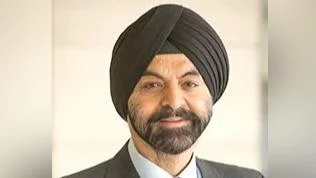Sweden and Iceland have announced their commitments to invest in hybrid capital, a financial product that significantly enhances the World Bank's lending capacity. These two countries join 13 others in contributing over $11.7 billion to hybrid capital and a Portfolio Guarantee Platform. These instruments are expected to increase the Bank’s lending by an additional $72.5 billion over the next decade.
Anshula Kant, Managing Director and World Bank Group Chief Financial Officer, expressed gratitude for the shareholders' contributions: “It is through the generosity of our shareholders that we can invest in projects that drive development impact and address the most pressing global challenges. This kind of investment translates into better health care, more jobs and greater opportunities as we build a more sustainable future.”
Sweden's Finance Minister Elisabeth Svantesson stated, “I am happy to announce that Sweden is planning to invest in hybrid capital. With its high leverage, this new instrument allows us shareholders to efficiently boost IBRD's financing capacity. Our investment is a testimony to Sweden’s support for the impressive job that the Bank has done in updating its financial model and developing new financial innovations."
Iceland’s Foreign Affairs Minister Thordis Kolbrun Reykfjord Gylfadottir commented on their contribution: “The World Bank is the world’s premier development institution and a priority partner in Iceland's development cooperation. Innovative financial instruments like hybrid capital are crucial to meet the growing financing needs of IBRD´s partner countries and Iceland is happy to support the Bank in that journey.“
Hybrid capital serves as a subordinated debt instrument with unique leveraging potential, while the Portfolio Guarantee Platform provides a shared risk approach, making World Bank financing more accessible. These products were developed following recommendations from the G20’s Independent Panel for Review of Multilateral Development Banks (MDBs) Capital Adequacy Frameworks (CAF). Other reforms include adjusting the loan-to-equity ratio and increasing bilateral guarantee limits, collectively adding over $150 billion in new financing capacity over ten years.

